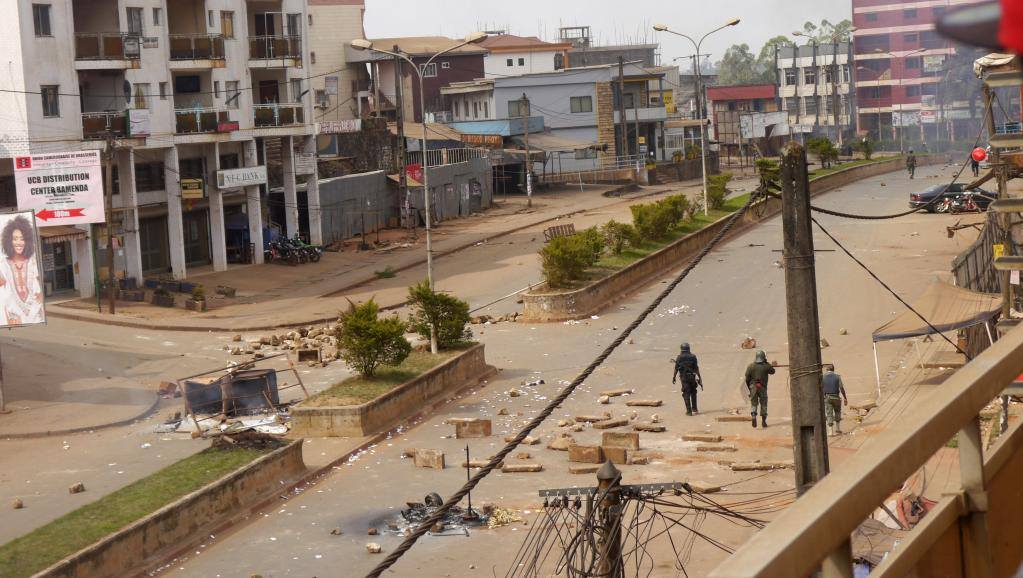
PARLIAMENT BEGINS BREXIT DEBATE

On Tuesday, the UK’s lower house will begin debating a bill giving the government authority to trigger Brexit. A vote is expected on Feb. 8, after which the bill will move to the upper house for approval.
Despite PM Theresa May’s insistence that Brexit begin by the end of March, the bill to be introduced on Tuesday – which is just five paragraphs long – contains no date. While the process isn’t expected to be delayed, the government will face some pushback from opposition parties.
Ms May’s strongest domestic challenge will come from the Scottish National Party, which says it will table some 50 amendments to water down the legislation to prevent a “hard Brexit”.
But Labour’s leader says he’ll force his party’s 231 lawmakers to vote for the bill.
In one form or another, the passage of Ms May’s Brexit bill looks certain – her chances of securing a better deal than the UK already has do not.
CAMEROON’S ANGLOPHONES MAKE THEIR SILENCE HEARD

Ongoing protests in English-speaking regions of Cameroon are expected to flare again on Tuesday.
Anglophone communities in northwest and southwest Cameroon have been incensed by a government ban on two organisations that represent their interests. While a majority of Cameroonians speak French, English is the primary (and, in some cases, only) language of some 20% of the country’s 22 million people – a legacy from British colonial times.
For its part, the government says the two banned organisations advocated secession and were seeking to use legitimate but minor grievances to split Cameroon in two by referendum.
But Cameroon’s government appears to have aggravated the situation. Last week, it shut down internet access in English-speaking cities after local groups brought activity to a grinding halt in so called ‘ghost town’ protests. This innovative civil disobedience tactic is reportedly organised by hundreds of smartphone-wielding activists who take advantage of the country’s remarkably high mobile penetration rate.
While Tuesday’s protests have the potential to turn violent, the deployment of large numbers of security forces in the affected areas means any unrest will be dealt with swiftly.
BOJ MEETS AS AUTO INDUSTRY COMES UNDER PRESSURE FROM TRUMP

The Bank of Japan is expected to hold its interest rate steady on Tuesday. But while central bankers may be content with their current course, business and political leaders are rushing to get their house in order ahead of PM Abe’s meeting with Donald Trump next week.
In a phone call between the two leaders last weekend, President Trump reportedly expressed concern about Japan’s one-way trade, particularly when it comes to passenger vehicles. Cars and their components account for some 70% of the trade gap between the two countries – estimated to be $62 billion in Japan’s favour.
Indeed, the statistics confirm Mr Trump’s suspicions that Japan’s car market is, at the very least, self-contained and at most a closed market. Of all passenger vehicles sold in Japan last year just 7% were made overseas and less than 0.5% in America.
For his part, PM Abe is rumoured to have scheduled a meeting on Friday with the CEO of Toyota, the world’s largest car company, to thrash out a plan of attack.
OTHER DEVELOPMENTS
Tuesday will be the last day for Americans to sign up for healthcare under President Obama’s Affordable Care Act, commonly known as Obamacare.
Pakistan’s politicians will begin debating the fate of the country’s controversial military courts, which have ordered the execution of more than 100 terrorism suspects in the past two years. The debate is widely seen as a test of new Army Chief Bajwa.
Apple Inc will release its quarterly earnings, with some analysts expecting the Cupertino-based company to announce record revenues.
Exxon Mobil will also report quarterly profits, less than a month after CEO Rex Tillerson left the company to become US Secretary of State.
Small-scale protests are expected in Jakarta, Indonesia as the city’s governor faces trial on allegations of blasphemy.

